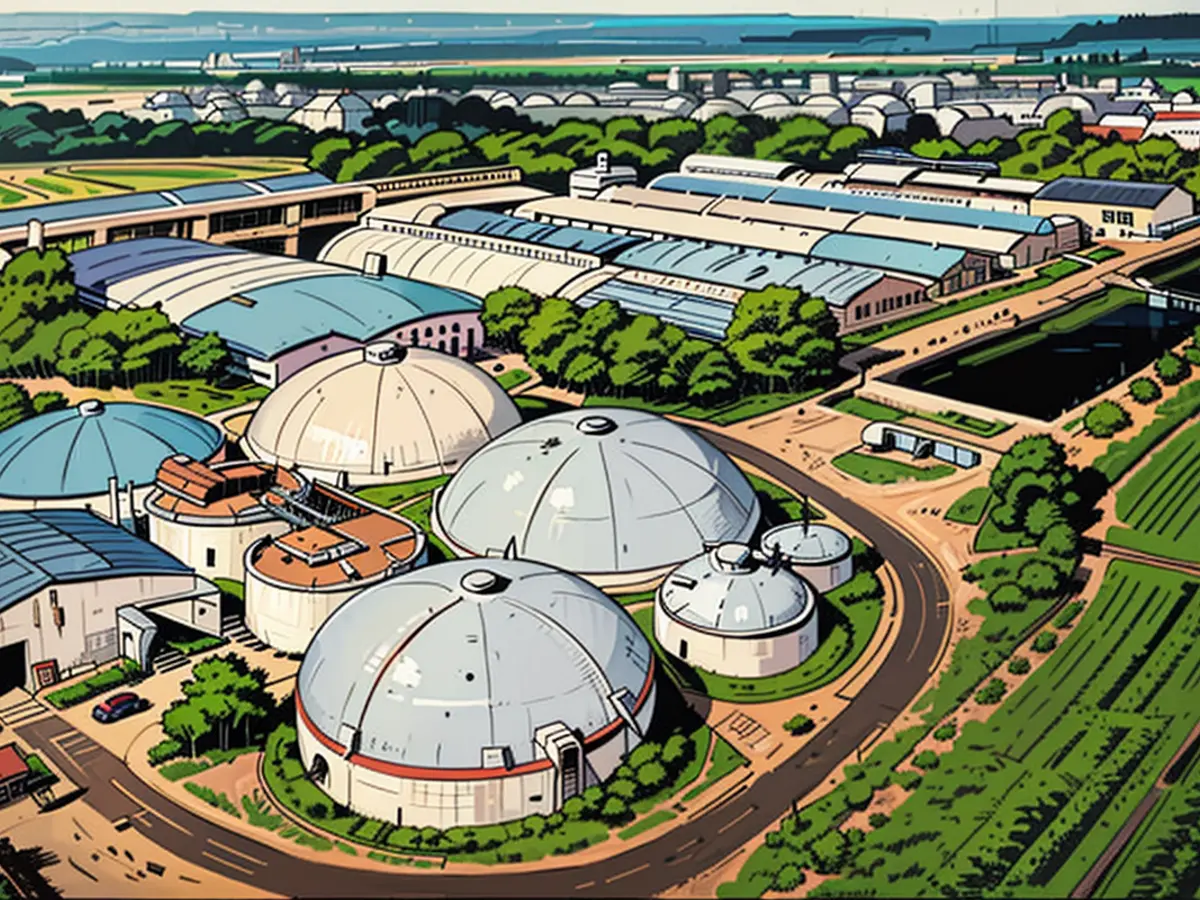- Biogas plants are threatened with closure
A significant portion of biogas plants** in Thuringia are gradually falling out of the 20-year limited subsidy scheme. These important energy producers, which contribute around 20 percent of renewable energy in the state, are thus facing closure. This is unacceptable to Thuringia's Minister of Energy, Bernhard Stengel (Greens).
"Federal government must finally step up for bioenergy. Operators of biogas plants need clarity and planning security – otherwise, plants may disappear," Stengel told dpa in Erfurt. He thus demanded subsidy improvements from his party colleague, Federal Minister of Economics, Robert Habeck.
Often part of heat supply in villages
Stengel: "If operators shut down for economic reasons, it would be a loss for us all, for regional value creation and climate protection. Without biogas, we won't achieve the energy transition, both in the power and heat sectors."
According to his ministry, almost 400 combined heat and power plants are operated with biogas in the state. Some plants are also connected to district heating networks and thus form an important part of regional heat supply, especially in rural areas.
Often technical upgrades needed
The problem: A significant portion of biogas plants were built between 2004 and 2009 and are thus gradually losing their subsidy under the Renewable Energy Act (EEG), receiving no more legally regulated compensation. Additionally, technical upgrades are often necessary for their continued operation, along with other investments. The goal is at least to secure the existing plant stock, says the minister.
The share of residues such as manure, bio-waste, and dung as substrate in bioenergy use in Thuringia is around 70 percent. Thus, bioenergy is not in competition for land with food production, but rather part of a circular agricultural economy. Moreover, they serve as a second economic pillar for many agricultural businesses.
According to the Biogas Association, the premiums for the flexible operation of bioenergy plants are insufficient and the tender volumes for bioenergy plants are too low. Thus, incentives are lacking. The Biogas Association represents the biogas industry within the German Renewable Energy Federation.
"With the closure of biogas plants due to subsidy scheme limitations, we risk losing a significant contributor to Thuringia's renewable energy goals and regional value creation. The future of bioenergy in Thuringia is uncertain without improved subsidies and investment support."
"As biogas plants age and require technical upgrades, the future of this sector relies on sustained government support and competitive pricing. Ensuring the longevity of biogas plants is crucial for achieving Thuringia's energy transition goals in both power and heat sectors."








